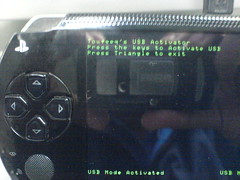Lua for Windows – Short Introduction and Files
 Image by toufeeq via Flickr
Image by toufeeq via Flickr
Lua for Windows – A Short Introduction.
1. What is Lua?
2. What is Lua for Windows?
3. What comes with Lua for Windows?
4. Using Lua for Windows.
4.1 Running Lua Programs.
4.2 Editing Lua Programs.
4.3 Debugging Lua Programs.
4.4 Using Lua without command console.
5. Concise Overview of Lua Programming Language.
6. Libraries included with Lua for Windows.
7. Learn more about Lua.
8. Acknowledgments.
1. What is Lua?
Lua is a small, fast, interpreted scripting language. Lua is the result of a merger of a configuration language (SOL) and a data entry language (DEL) . Lua's original goal was to be an extensible embedded scripting language inside software applications. Lua has been highly successful as an embedded scripting language and is used in many games, firmware and software applications. With the recent addition of modules, Lua now has a standard method to load libraries. Lua together with Lua libraries enables a complete standalone scripting language.
Lua’s unique focus on extensibility, simplicity, efficiency and portability make it a small yet powerful scripting language. Lua is often used as a Domain Specific Language due to its small size, embeddability and portability. Lua supports a small set of general features and provides meta-mechanisms to allow the programmer to support programming styles of their choice.
Lua was developed by Roberto Ierusalimschy, Luiz Henrique de Figueiredo, and Waldemar Celes at the Pontifical University of Rio de Janeiro (PUC-Rio), in Brazil.
Lua means Moon in Portuguese, so be ready for libraries with references to space or the moon, and enjoy.
Lua’s unique focus on extensibility, simplicity, efficiency and portability make it a small yet powerful scripting language. Lua is often used as a Domain Specific Language due to its small size, embeddability and portability. Lua supports a small set of general features and provides meta-mechanisms to allow the programmer to support programming styles of their choice.
Lua was developed by Roberto Ierusalimschy, Luiz Henrique de Figueiredo, and Waldemar Celes at the Pontifical University of Rio de Janeiro (PUC-Rio), in Brazil.
Lua means Moon in Portuguese, so be ready for libraries with references to space or the moon, and enjoy.
2. What is Lua for Windows?
Lua for Windows is a 'batteries included environment' for the Lua scripting language on Windows.
Lua for Windows combines Lua binaries, Lua libraries with a Lua-capable editor in a single install package for the Microsoft Windows operating system. Lua for Windows contains everything you need to write, run and debug Lua scripts on Windows. A wide variety of libraries and examples are included that are ready to use with Microsoft Windows. Lua for Windows runs on Windows 2000 and newer versions of Windows. Lua and its associated libraries are also available for other operating systems, so most scripts will be automatically cross-platform.

Marcadores: Apache, Brazil, Code, Language, Languages, Lighttpd, Lua, Power, Programming, Scripts, Windows